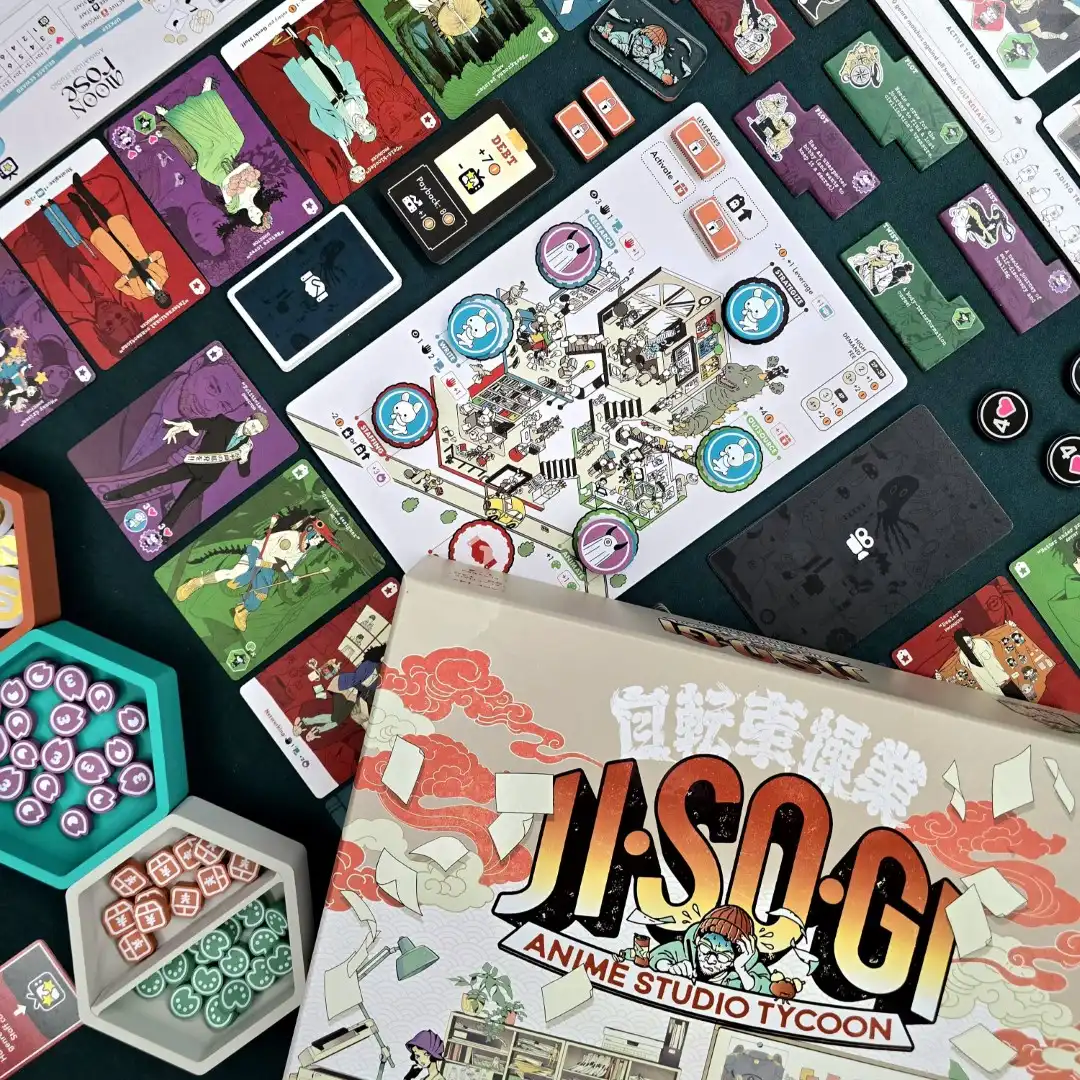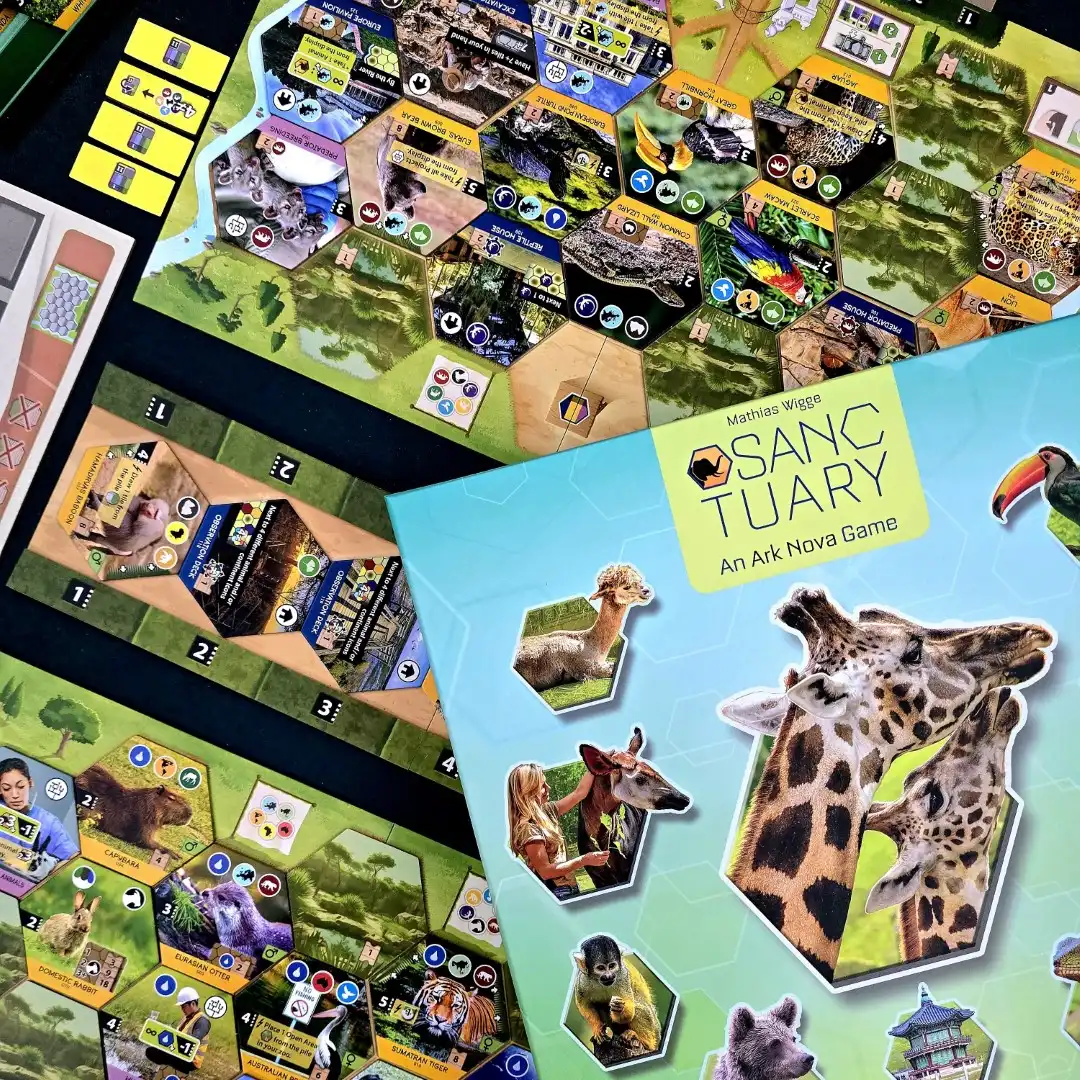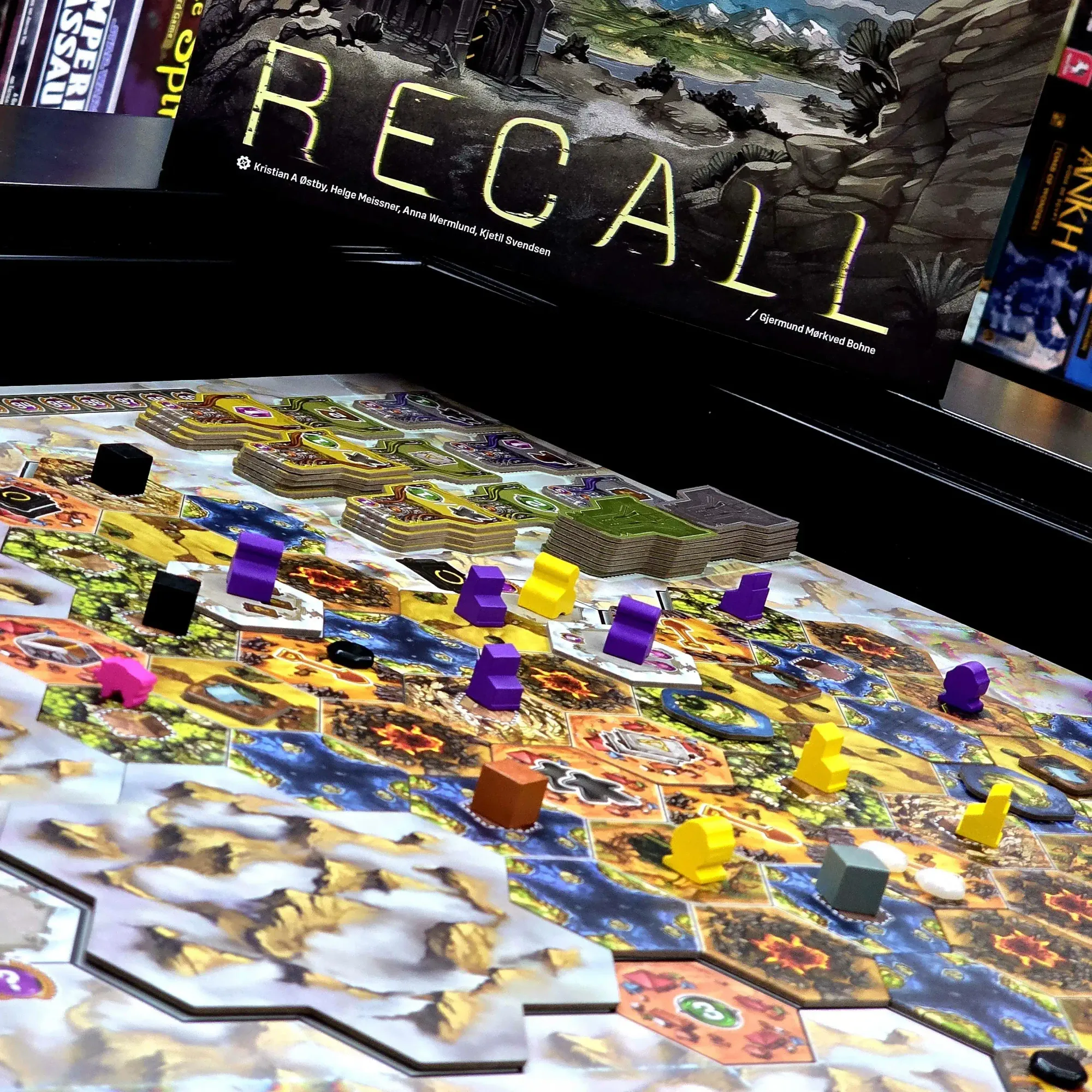A tense duel across time
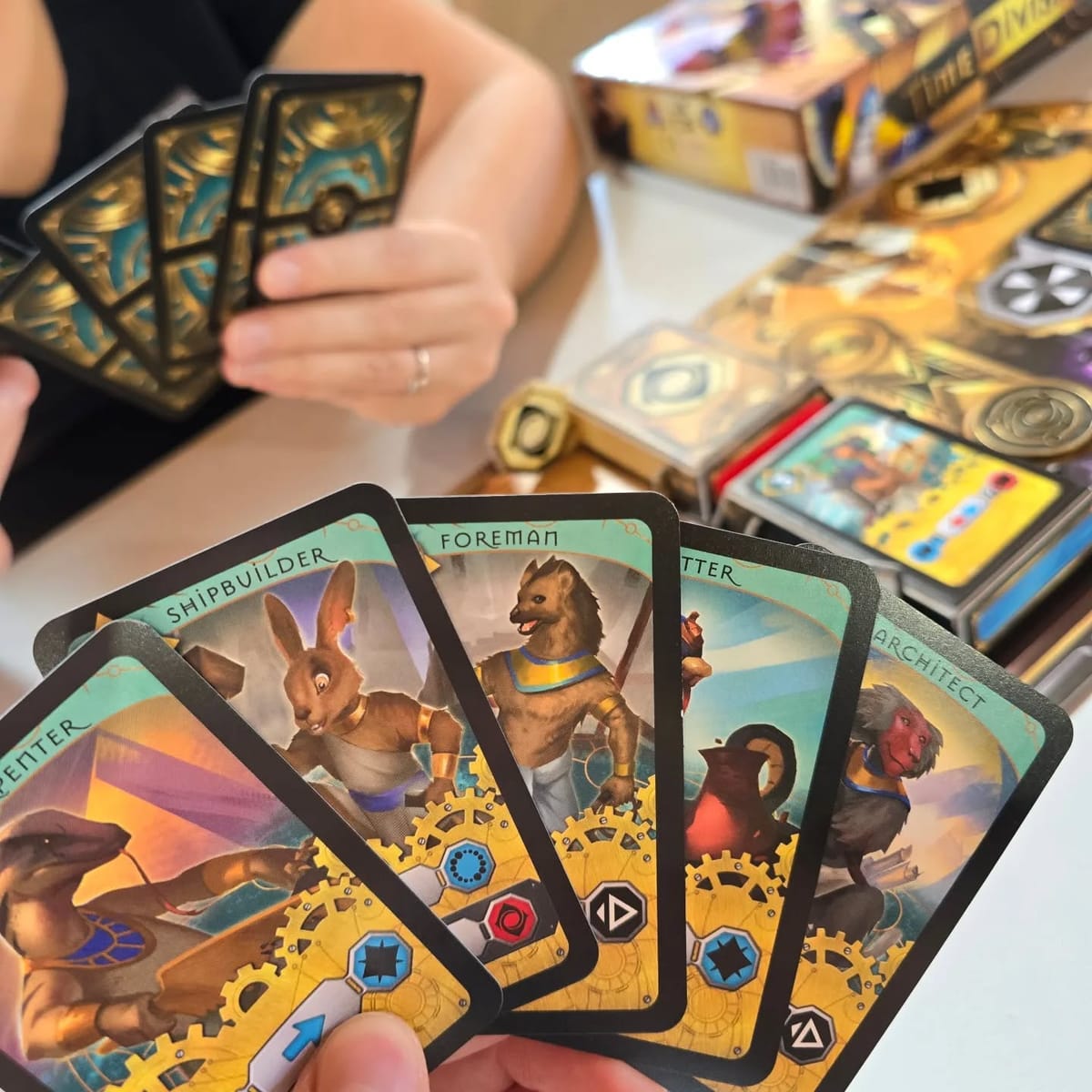
The greatest games often have a simple concept. This is the case for Time Division too. 😉 In this 2p duel game you and your opponent will basically play 6 cards each, 1 card per round, then see who wins. But of course it is much more complex in practice than it sounds. Decisions are often excruciatingly difficult, and big plays can instantly turn the tide of the duel. 👌
It all starts with the draft. You shuffle the deck of 18 cards, dealing 9 to each player. You will then draw up 3, choose one for yourself, one for your opponent and one to put back in a deck. Repeating this 3 times, you will both have 6 cards, and you partially know what the other has or doesn't have. Then the game begins! 💪
The player with the initiative plays a card, then the other player does so too. Whoever played the card with the higher value gets the initiative (thus they'll start the next round) and have to decide who gets to put their card into their play area where it acts as victory points, and who gets to activate their card's ability.
And this is the core of the fun: all the different card abilities and interactions between them. 🧐 Every turn it's so hard to decide what to play - actually this challenge begins with the drafting. Even though games are over quickly, the decision density is immense. And did I mention the game comes with 3 decks? You can play in 3 different eras, and card abilities vary a lot. You can also do a little campaign, playing all 3 in sequence and determine the winner.
After the 6 cards are played you just sum up the card values in their area for both players, and whoever has more points wins! 🏆
A negative I could mention is the size of the box. In my opinion this could have been a lot smaller, just a deck of cards without a board. This also raises the price point a bit above similar 2p games. The iconography is difficult to learn too, but that gets better with practice. 👍
But ultimately Time Division works amazingly, and you should definitely give it a go if you are into such games. 🥰
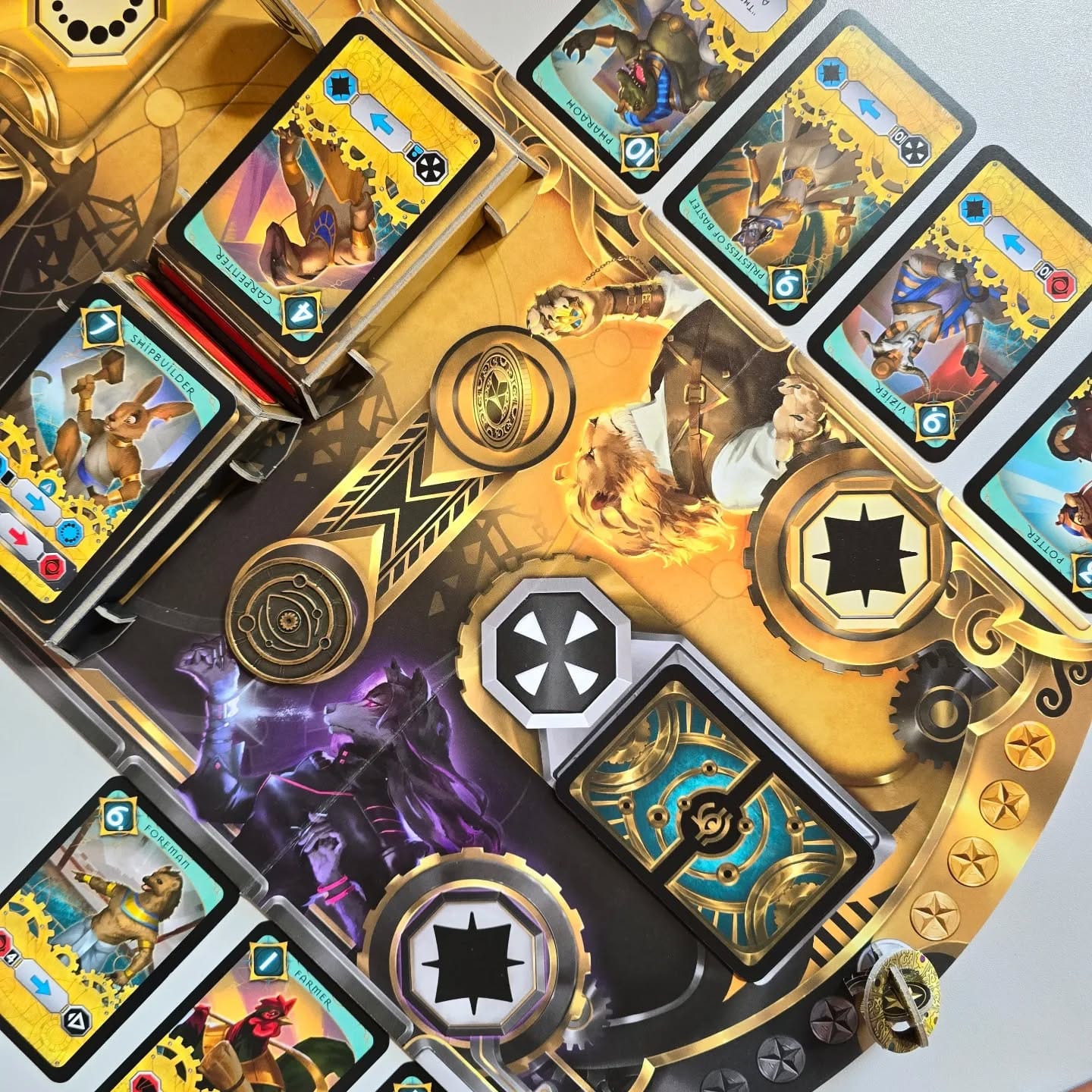
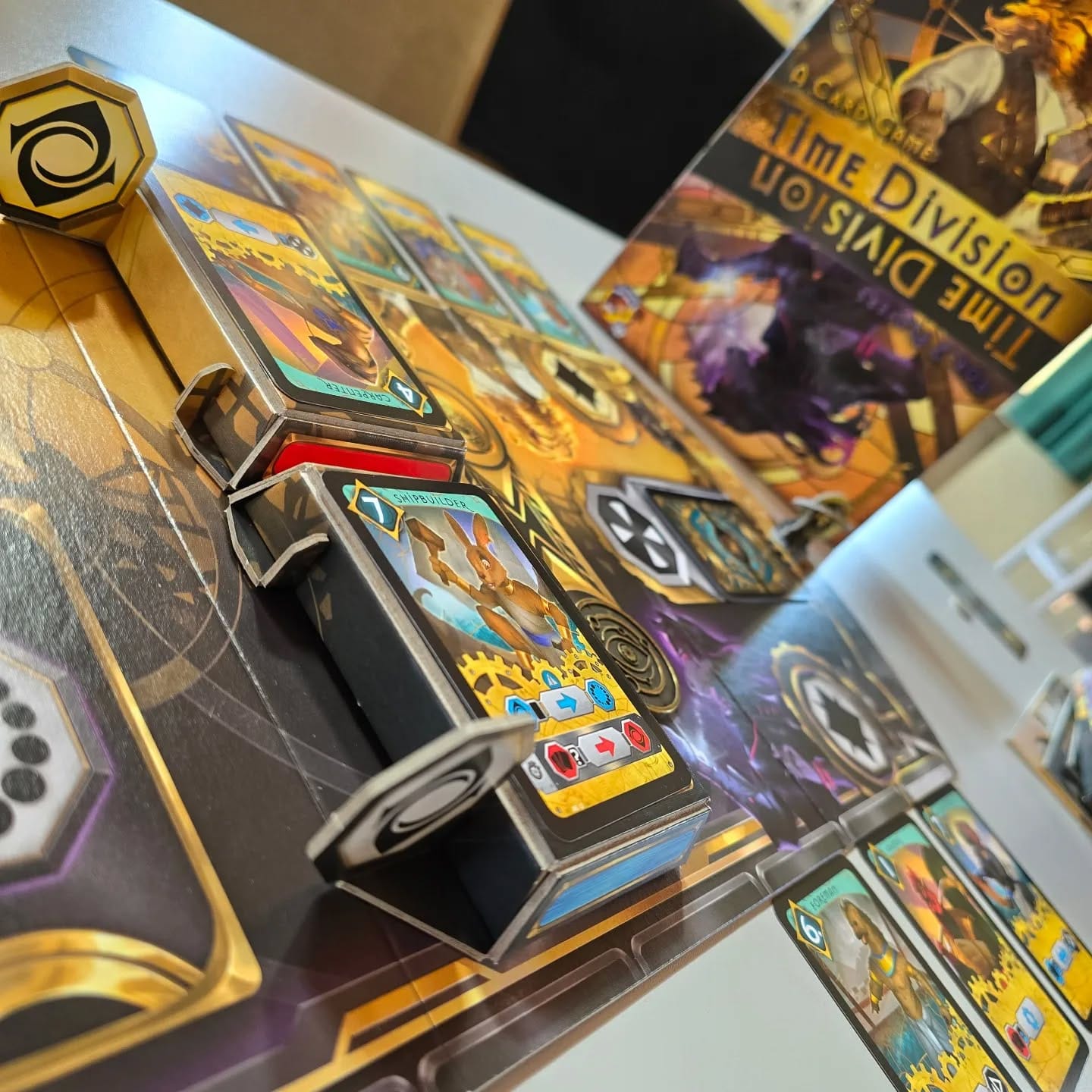
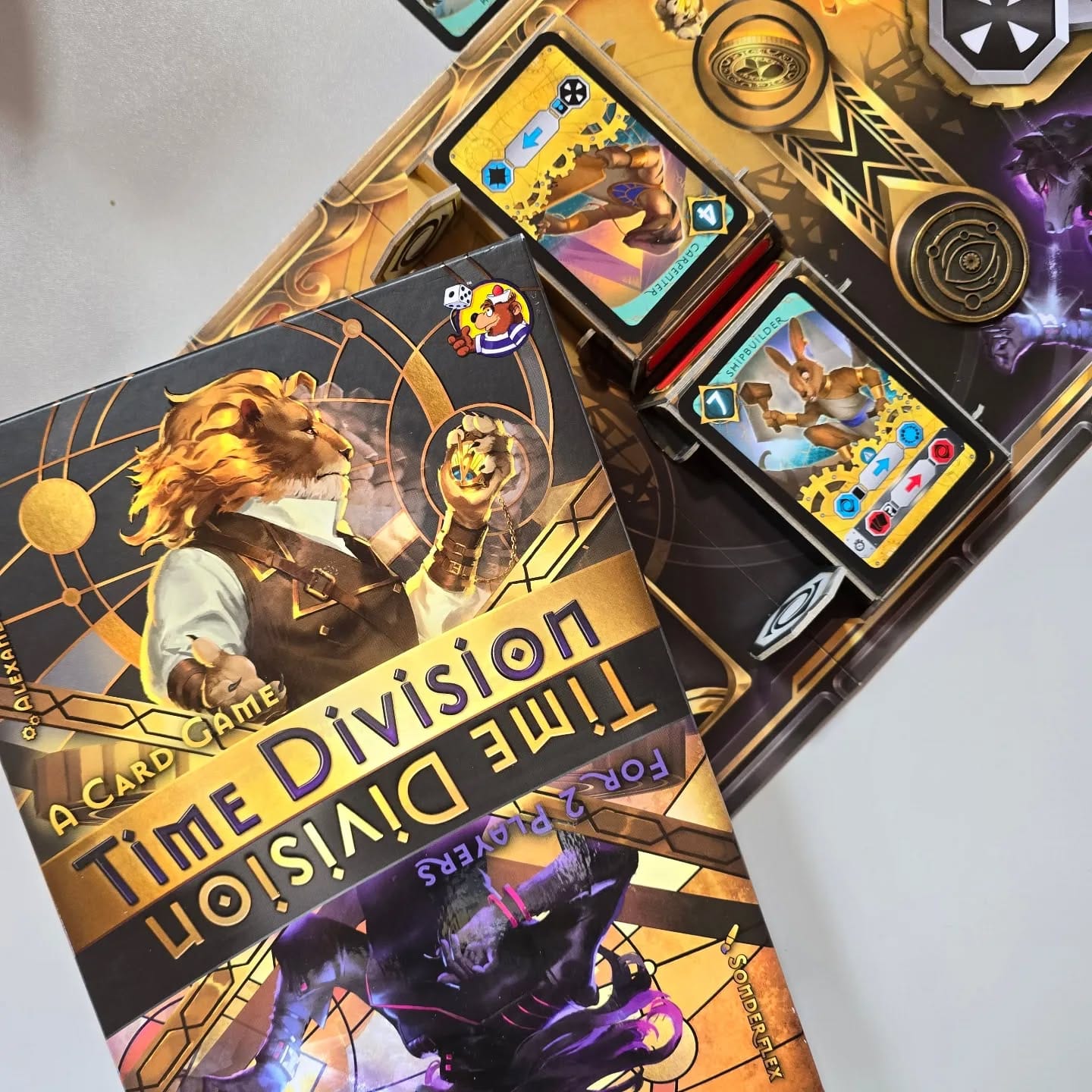
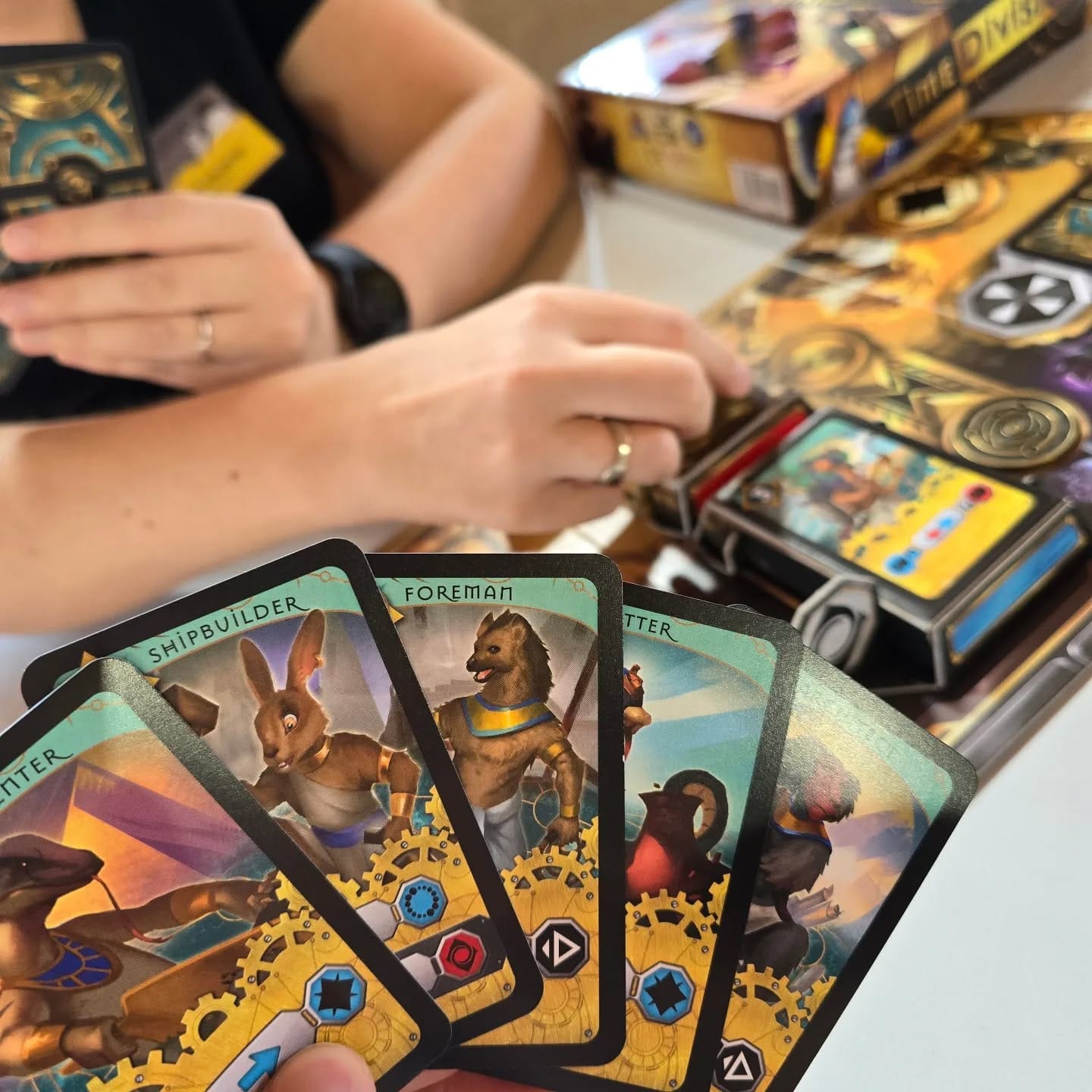
A copy of the game was kindly provided by the publisher. Read our content policy.
